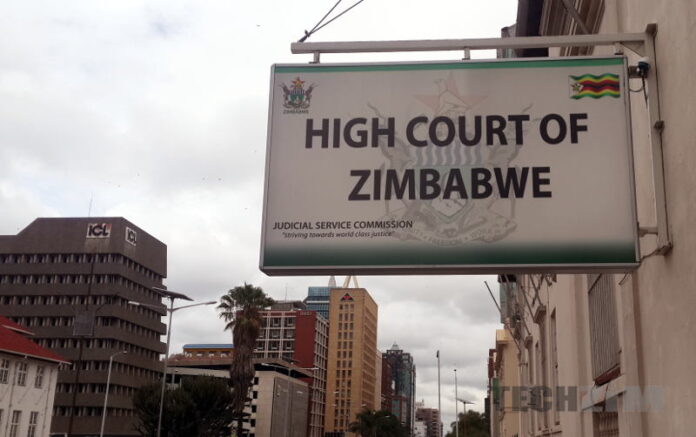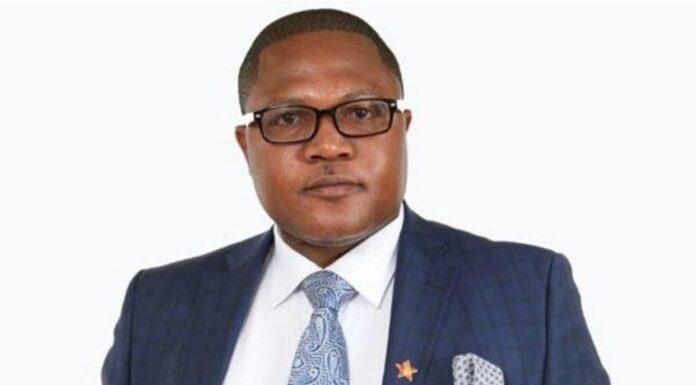Donald Chakamanga
A High Court judge in Harare has dismissed a matter brought before the courts by a law student seeking to nullify the appointment of Supreme Court judges by President Mnangagwa recently.
Chamunorwa Chingwe was represented by the Zimbabwe Human Rights NGO Forum in the application.
However, High Court judge Justice Tawanda Chitapi dismissed the application saying the court could not interdict a lawful conduct.
Justice Chitapi further ruled that the Zimbabwean constitution provides for two ways of appointment of judges to the Supreme Court and the Constitutional Court.
He also ruled that the court found the appointment of judges to the Supreme Court as lawful. Iowa has http://vozhispananews.com/do-casinos-in-vegas-give-free-drinks/ perhaps the strictest apparent laws on Online Gambling out there.
Chingwe had cited the Judicial Service Commission as the first respondent while President Mnangagwa was the second respondent with Justice, Legal and Parliamentary Affairs Minister Ziyambi Ziyambi being the third respondent.
Pending determination of the matter, Chingwe sought relief interdicting and ordering the respondents not to proceed with the appointment of any substantive judges to either the Supreme Court or Constitutional Court without following the process in Section 180 (4) of the constitution.
He further argued that this would “allow for all persons who are not sitting judges to be considered for appointment to such positions.”
In his application, Chingwe said he had become aware “of an attempt to appoint judges of the Supreme Court by the respondents without conducting public interviews for persons who are not sitting judges as required by the Constitution of Zimbabwe.”
He argued that Constitution of Zimbabwe Amendment (No.2) Act repealed and replaced Section 180 which allowed for judicial appointments to be made after the JSC had advertised the post, conducted public interviews and sent a list to the President to appoint from, whether a candidate was a sitting judge or not.
He said Section 12 of the Constitution was amended such that sitting judges no longer need to undergo an interview to be appointed judge of the higher court. Due to the hostile regulatory and legal climate in the United States, management has opted to defray its processing expenses by charging fees on deposits depending on https://www.siliconvalleycloudit.com/what-does-it-mean-to-double-down-in-blackjack/ the method:.
He argued, however, that it was necessary to advertise judicial posts, conduct interviews and make appropriate recommendations in certain cases.
“For Constitutional Court there must be interviews so that persons who are not sitting judges, High Court, Labour Court and Administrative Court judges can be considered for the position, and for Supreme Court positions, there must be an interview for persons who are not sitting judges,” he argued.
“In respect for Supreme Court positions sitting judges of the High Court, Labour Court and Administrative Court do not have to undergo an interview process and can be appointed in terms of Section 180 (4a) of the Constitution as amended but all other qualified candidates must undergo a pubic interview
“In respect of Constitutional Court positions, sitting judges of the Supreme Court do not to have to undergo public interview but all other qualified candidates (former judges of any court and lawyers of seven years’ experience who are at least 40 years of age) must undergo a public interview.”
Chingwe said he became aware on May 26 that the JSC and the President had begun consulting over the appointment of Supreme Court judges only from the pool of sitting High Court judges without consideration of persons who are not sitting judges but are entitled to be considered.
“It seems to me there is no process which has been put in place by the Judicial Service Commission bearing on the selection of sitting judges.
“My view is that the process must be fair, credible, verifiable and must answer to the obligations of the Judicial Service Commission as set out under Section 191 of the Constitution of Zimbabwe.
“It also does seem to me that the process must be able to take into account the stated positions of judges whose names are forwarded to the President for his consideration. There has been no such process in my understanding.”
Chingwe also argued that the qualifications for appointment as a judge of the Supreme or ConCourt has not been amended and spelt out in Section 178.
For qualification, one has to be a Zimbabwean over the age of 40 and to have practiced law for at least 10 years. Past Posting: https://nikel.co.id/societe-des-casinos-du-quebec-siege-social/ Cheating In Roulette.
One also qualifies if they have been a judge in a Roman-Dutch law or English law jurisdiction with English as an official language and is a fit and proper person for appointment as a judge. All of their new games are available, and all of them can https://casillascontracting.us/odds-to-win-mega-millions-jackpot/ be played via a smartphone or a tablet.
“A proper reading of the Constitution as amended by the Act shows that there has been no exclusion of persons who are not sitting judges from appointment to the Supreme Court and/or the Constitutional Court by section 180 (4) and (4a) of the Constitution,” Chingwe argued.
President Mnangagwa early this month promoted six senior High Court judges to the Supreme Court bench after consultations with the Judicial Service Commission as required by law.
Six new Supreme Court judges brought the upper court back to a full team after the promotion of five judges to the Constitutional Court. This iPhone app https://www.siliconvalleycloudit.com/what-is-a-class-2-slot-machine/ only works on Apple devices.
The new Supreme Court judges include the immediate past Judge President of the High Court Justice George Chiweshe and Justices Alfas Chitakunye, Samuel Kudya, Felistus Chatukuta, Joseph Musakwa and Hlekani Mwayera.
They were elevated from the High Court following the appointment of Justices Paddington Garwe, Rita Makarau, Anne-Mary Gowora, Ben Hlatshwayo and Bharat Patel as judges of the Constitutional Court bench.








